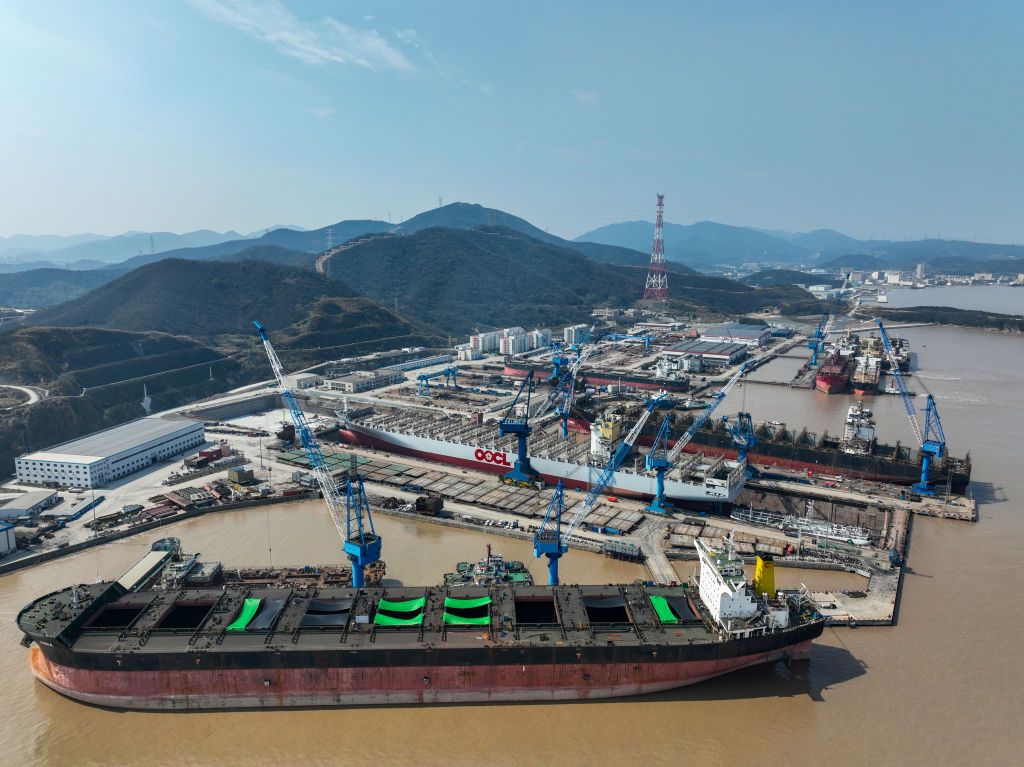A cargo ship registered in North Korea has been docked at a Chinese port for months, raising concerns about illicit arms transfers to Russia. The ship, named Angara, has been accused of carrying North Korean military cargo to Russia overseas. The U.S. State Department acknowledged reports of the Angara’s presence in China, which would violate a U.N. resolution on trading with North Korea. The Angara, sanctioned by the U.S. in 2022, has reportedly made multiple trips between North Korea and Russia. Despite inquiries, the Chinese and Russian governments have not commented on the situation. U.S. Secretary of State Antony Blinken’s recent visit to China included warnings about supporting Russia in its war with Ukraine.
China’s support for Russia in its conflict with Ukraine has been a point of contention for the U.S. The relationship between China and Russia has allowed Moscow to sustain its economy and military industry amid Western sanctions. The U.S. has urged China to refrain from providing lethal military aid to Russia and to use its influence to help end the war. China has maintained that its alliance with Russia is normal and that it has not supplied weapons to either side in the conflict. The U.S. and European Union continue to monitor the situation closely and apply pressure on Russia through sanctions.
The European Union is preparing to implement more sanctions against Russia, targeting shadow fleets and ships involved in transporting North Korean equipment. EU Trade Commissioner Valdis Dombrovskis announced plans for the 14th round of sanctions to be adopted in the spring. The EU’s actions are part of a coordinated effort to hold Russia accountable for its aggression in Ukraine and to limit its access to resources and support from other nations. The EU, along with the U.S., has been actively working to isolate Russia economically and diplomatically in response to its actions in Ukraine.
The connection between North Korea, Russia, and China highlights the complexities of international relations and the challenges of enforcing sanctions and regulations. The Angara incident underscores the need for stronger monitoring and enforcement mechanisms to prevent illicit arms transfers and violations of international agreements. As tensions persist in the region, diplomatic efforts and multilateral cooperation are essential to address the root causes of conflicts and prevent further escalation. The involvement of different countries in supporting or opposing various parties in conflicts adds layers of complexity to global security dynamics and requires a coordinated and strategic approach to maintain stability and peace. Supporting independent journalism and transparency is crucial in shedding light on such incidents and holding governments and entities accountable for their actions.


